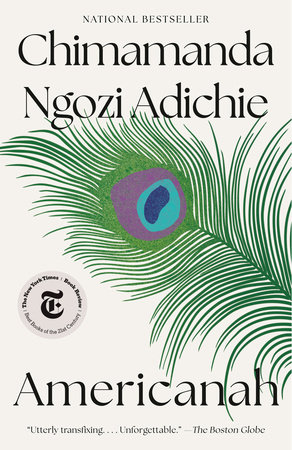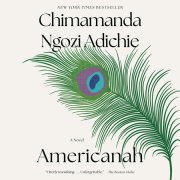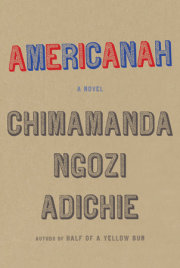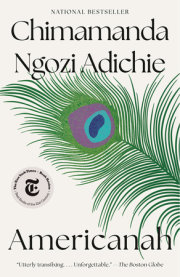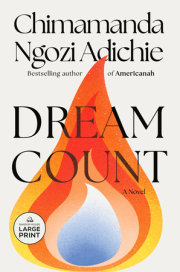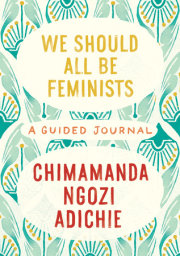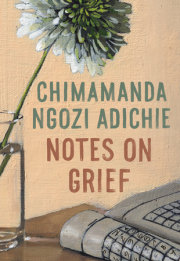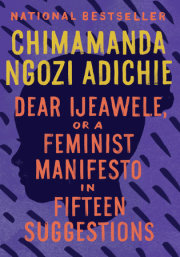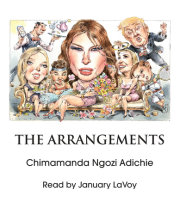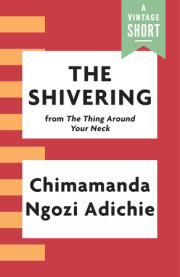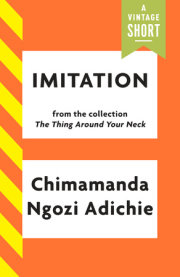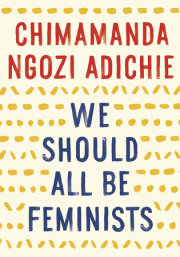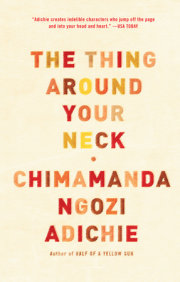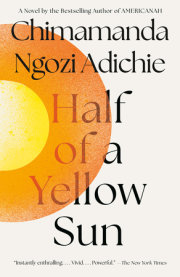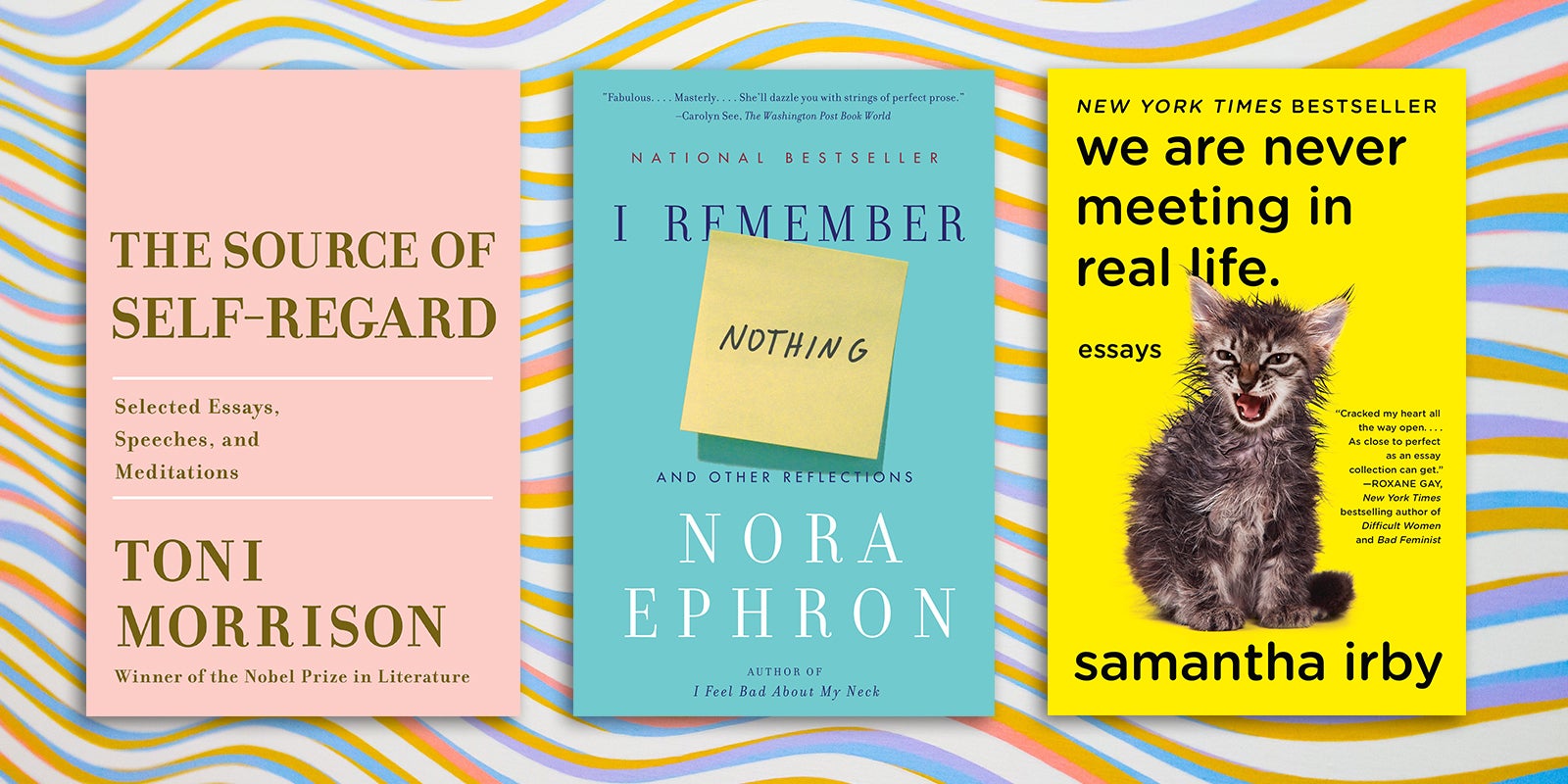Princeton, in the summer, smelled of nothing, and although Ifemelu liked the tranquil greenness of the many trees, the clean streets and stately homes, the delicately overpriced shops, and the quiet, abiding air of earned grace, it was this, the lack of a smell, that most appealed to her, perhaps because the other American cities she knew well had all smelled distinctly. Philadelphia had the musty scent of history. New Haven smelled of neglect. Baltimore smelled of brine, and Brooklyn of sun-warmed garbage. But Princeton had no smell. She liked taking deep breaths here. She liked watching the locals who drove with pointed courtesy and parked their latest model cars outside the organic grocery store on Nassau Street or outside the sushi restaurants or outside the ice cream shop that had fifty different flavors including red pepper or outside the post office where effusive staff bounded out to greet them at the entrance. She liked the campus, grave with knowledge, the Gothic buildings with their vine-laced walls, and the way everything transformed, in the half-light of night, into a ghostly scene. She liked, most of all, that in this place of affluent ease, she could pretend to be someone else, someone specially admitted into a hallowed American club, someone adorned with certainty.
But she did not like that she had to go to Trenton to braid her hair. It was unreasonable to expect a braiding salon in Princeton—the few black locals she had seen were so light-skinned and lank-haired she could not imagine them wearing braids—and yet as she waited at Princeton Junction station for the train, on an afternoon ablaze with heat, she wondered why there was no place where she could braid her hair. The chocolate bar in her handbag had melted. A few other people were waiting on the platform, all of them white and lean, in short, flimsy clothes. The man standing closest to her was eating an ice cream cone; she had always found it a little irresponsible, the eating of ice cream cones by grown-up American men, especially the eating of ice cream cones by grown-up American men in public. He turned to her and said, “About time,” when the train finally creaked in, with the familiarity strangers adopt with each other after sharing in the disappointment of a public service. She smiled at him. The graying hair on the back of his head was swept forward, a comical arrangement to disguise his bald spot. He had to be an academic, but not in the humanities or he would be more self-conscious. A firm science like chemistry, maybe. Before, she would have said, “I know,” that peculiar American expression that professed agreement rather than knowledge, and then she would have started a conversation with him, to see if he would say something she could use in her blog. People were flattered to be asked about themselves and if she said nothing after they spoke, it made them say more. They were conditioned to fill silences. If they asked what she did, she would say vaguely, “I write a lifestyle blog,” because saying “I write an anonymous blog called Raceteenth or Various Observations About American Blacks (Those Formerly Known as Negroes) by a Non-American Black” would make them uncomfortable. She had said it, though, a few times. Once to a dreadlocked white man who sat next to her on the train, his hair like old twine ropes that ended in a blond fuzz, his tattered shirt worn with enough piety to convince her that he was a social warrior and might make a good guest blogger. “Race is totally overhyped these days, black people need to get over themselves, it’s all about class now, the haves and the have-nots,” he told her evenly, and she used it as the opening sentence of a post titled “Not All Dreadlocked White American Guys Are Down.” Then there was the man from Ohio, who was squeezed next to her on a flight. A middle manager, she was sure, from his boxy suit and contrast collar. He wanted to know what she meant by “lifestyle blog,” and she told him, expecting him to become reserved, or to end the conversation by saying something defensively bland like “The only race that matters is the human race.” But he said, “Ever write about adoption? Nobody wants black babies in this country, and I don’t mean biracial, I mean black. Even the black families don’t want them.”
He told her that he and his wife had adopted a black child and their neighbors looked at them as though they had chosen to become martyrs for a dubious cause. Her blog post about him, “Badly-Dressed White Middle Managers from Ohio Are Not Always What You Think,” had received the highest number of comments for that month. She still wondered if he had read it. She hoped so. Often, she would sit in cafés, or airports, or train stations, watching strangers, imagining their lives, and wondering which of them were likely to have read her blog. Now her ex-blog. She had written the final post only days ago, trailed by two hundred and seventy-four comments so far. All those readers, growing month by month, linking and cross-posting, knowing so much more than she did; they had always frightened and exhilarated her. SapphicDerrida, one of the most frequent posters, wrote: I’m a bit surprised by how personally I am taking this. Good luck as you pursue the unnamed “life change” but please come back to the blogosphere soon. You’ve used your irreverent, hectoring, funny and thought-provoking voice to create a space for real conversations about an important subject. Readers like SapphicDerrida, who reeled off statistics and used words like “reify” in their comments, made Ifemelu nervous, eager to be fresh and to impress, so that she began, over time, to feel like a vulture hacking into the carcasses of people’s stories for something she could use. Sometimes making fragile links to race. Sometimes not believing herself. The more she wrote, the less sure she became. Each post scraped off yet one more scale of self until she felt naked and false.
The ice-cream-eating man sat beside her on the train and, to discourage conversation, she stared fixedly at a brown stain near her feet, a spilled frozen Frappuccino, until they arrived at Trenton. The platform was crowded with black people, many of them fat, in short, flimsy clothes. It still startled her, what a difference a few minutes of train travel made. During her first year in America, when she took New Jersey Transit to Penn Station and then the subway to visit Aunty Uju in Flatlands, she was struck by how mostly slim white people got off at the stops in Manhattan and, as the train went further into Brooklyn, the people left were mostly black and fat. She had not thought of them as “fat,” though. She had thought of them as “big,” because one of the first things her friend Ginika told her was that “fat” in America was a bad word, heaving with moral judgment like “stupid” or “bastard,” and not a mere description like “short” or “tall.” So she had banished “fat” from her vocabulary. But “fat” came back to her last winter, after almost thirteen years, when a man in line behind her at the supermarket muttered, “Fat people don’t need to be eating that shit,” as she paid for her giant bag of Tostitos. She glanced at him, surprised, mildly offended, and thought it a perfect blog post, how this stranger had decided she was fat. She would file the post under the tag “race, gender and body size.” But back home, as she stood and faced the mirror’s truth, she realized that she had ignored, for too long, the new tightness of her clothes, the rubbing together of her inner thighs, the softer, rounder parts of her that shook when she moved. She was fat.
She said the word “fat” slowly, funneling it back and forward, and thought about all the other things she had learned not to say aloud in America. She was fat. She was not curvy or big-boned; she was fat, it was the only word that felt true. And she had ignored, too, the cement in her soul. Her blog was doing well, with thousands of unique visitors each month, and she was earning good speaking fees, and she had a fellowship at Princeton and a relationship with Blaine—“You are the absolute love of my life,” he’d written in her last birthday card—and yet there was cement in her soul. It had been there for a while, an early morning disease of fatigue, a bleakness and borderlessness. It brought with it amorphous longings, shapeless desires, brief imaginary glints of other lives she could be living, that over the months melded into a piercing homesickness. She scoured Nigerian websites, Nigerian profiles on Facebook, Nigerian blogs, and each click brought yet another story of a young person who had recently moved back home, clothed in American or British degrees, to start an investment company, a music production business, a fashion label, a magazine, a fast-food franchise. She looked at photographs of these men and women and felt the dull ache of loss, as though they had prised open her hand and taken something of hers. They were living her life. Nigeria became where she was supposed to be, the only place she could sink her roots in without the constant urge to tug them out and shake off the soil. And, of course, there was also Obinze. Her first love, her first lover, the only person with whom she had never felt the need to explain herself. He was now a husband and father, and they had not been in touch in years, yet she could not pretend that he was not a part of her homesickness, or that she did not often think of him, sifting through their past, looking for portents of what she could not name.
The rude stranger in the supermarket—who knew what problems he was wrestling with, haggard and thin-lipped as he was—had intended to offend her but had instead prodded her awake.
She began to plan and to dream, to apply for jobs in Lagos. She did not tell Blaine at first, because she wanted to finish her fellowship at Princeton, and then after her fellowship ended, she did not tell him because she wanted to give herself time to be sure. But as the weeks passed, she knew she would never be sure. So she told him that she was moving back home, and she added, “I have to,” knowing he would hear in her words the sound of an ending.
“Why?” Blaine asked, almost automatically, stunned by her announcement. There they were, in his living room in New Haven, awash in soft jazz and daylight, and she looked at him, her good, bewildered man, and felt the day take on a sad, epic quality. They had lived together for three years, three years free of crease, like a smoothly ironed sheet, until their only fight, months ago, when Blaine’s eyes froze with blame and he refused to speak to her. But they had survived that fight, mostly because of Barack Obama, bonding anew over their shared passion. On election night, before Blaine kissed her, his face wet with tears, he held her tightly as though Obama’s victory was also their personal victory. And now here she was telling him it was over.
“Why?” he asked. He taught ideas of nuance and complexity in his classes and yet he was asking her for a single reason, the cause. But she had not had a bold epiphany and there was no cause; it was simply that layer after layer of discontent had settled in her, and formed a mass that now propelled her. She did not tell him this, because it would hurt him to know she had felt that way for a while, that her relationship with him was like being content in a house but always sitting by the window and looking out.
“Take the plant,” he said to her, on the last day she saw him, when she was packing the clothes she kept in his apartment. He looked defeated, standing slump-shouldered in the kitchen. It was his houseplant, hopeful green leaves rising from three bamboo stems, and when she took it, a sudden crushing loneliness lanced through her and stayed with her for weeks. Sometimes, she still felt it. How was it possible to miss something you no longer wanted? Blaine needed what she was unable to give and she needed what he was unable to give, and she grieved this, the loss of what could have been.
Copyright © 2013 by Chimamanda Ngozi Adichie. All rights reserved. No part of this excerpt may be reproduced or reprinted without permission in writing from the publisher.

